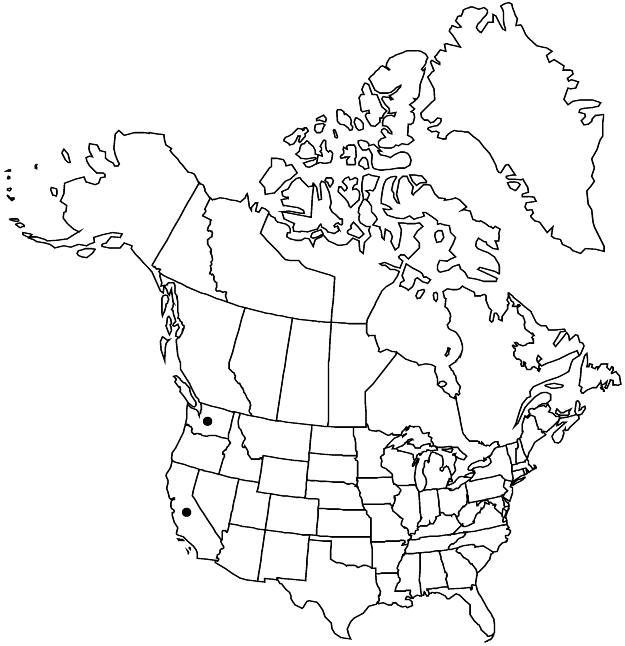Polygonum parryi
Bull. Torrey Bot. Club 8: 99. 1881.
Herbs, compact, often cushion-like. Stems erect, green-brown, simple or branched from base, not wiry, 2–5(–8) cm, glabrous. Leaves ± uniformly distributed, dense, not articulated to ocreae, basal leaves ± persistent, distal leaves gradually reduced to bracts; ocrea 2–4(–5) mm, glabrous, proximal part cylindric, distal part deeply lacerate, disintegrating into white, curled fibers; petiole absent; blade 3-veined, without pleats, linear-lanceolate, subulate, 5–13(–20) × 0.4–1 mm, margins revolute, smooth, apex spine-tipped. Inflorescences axillary; cymes in most axils, 1-flowered. Pedicels absent. Flowers closed; perianth 1.5–2(–2.5) mm; tube 6–15% of perianth length; tepals overlapping, usually reddish with white margins, petaloid, oblong, navicular, apex acute; midveins unbranched; stamens 8. Achenes slightly exserted from perianth at maturity, dark brown, ovate, 1.2–1.6(–2) mm, faces subequal, shiny, smooth.
Phenology: Flowering May–July.
Habitat: Vernally moist, open, sandy or rocky places
Elevation: 500-2000 m
Distribution

Calif., Wash.
Discussion
Selected References
None.